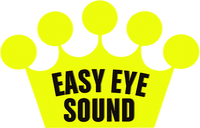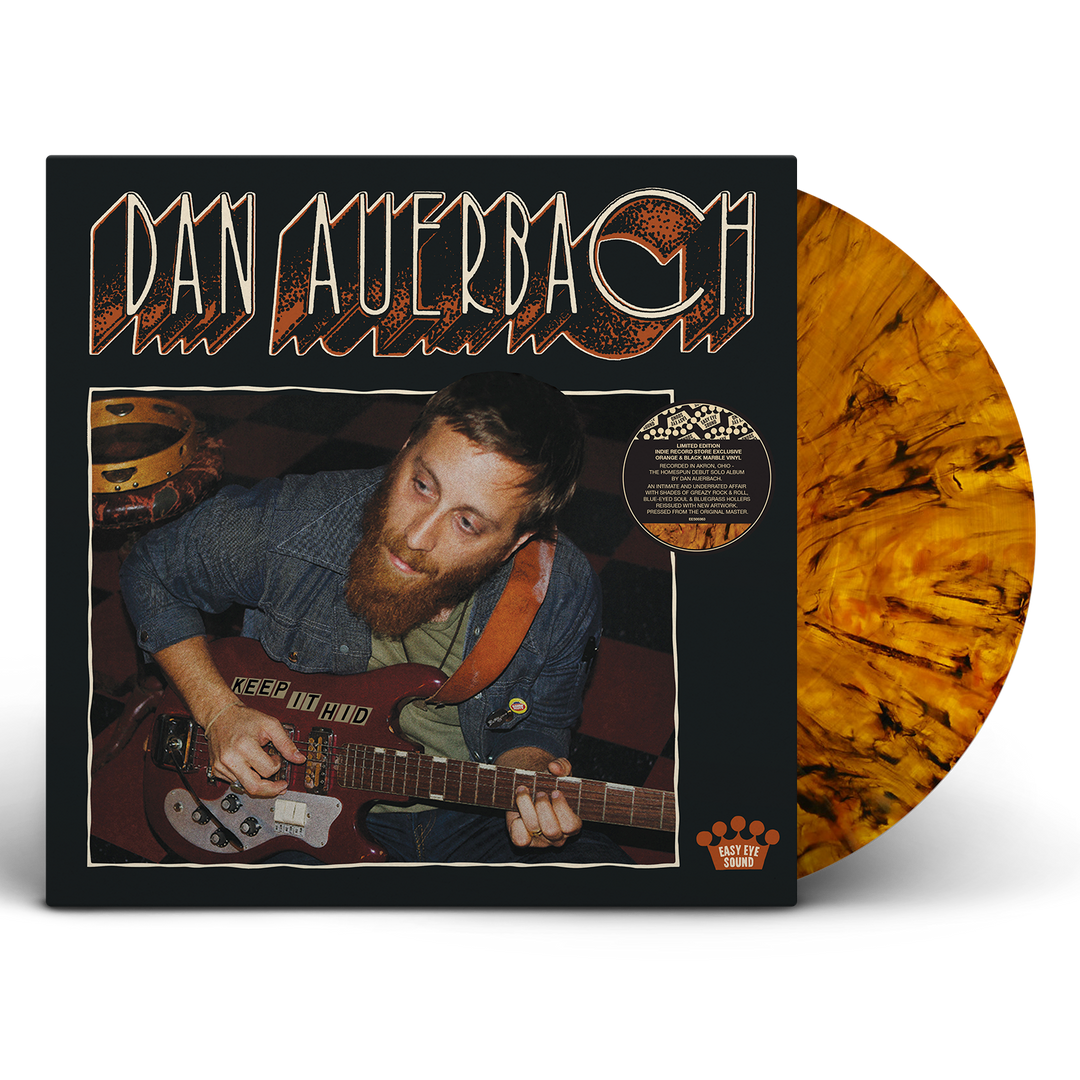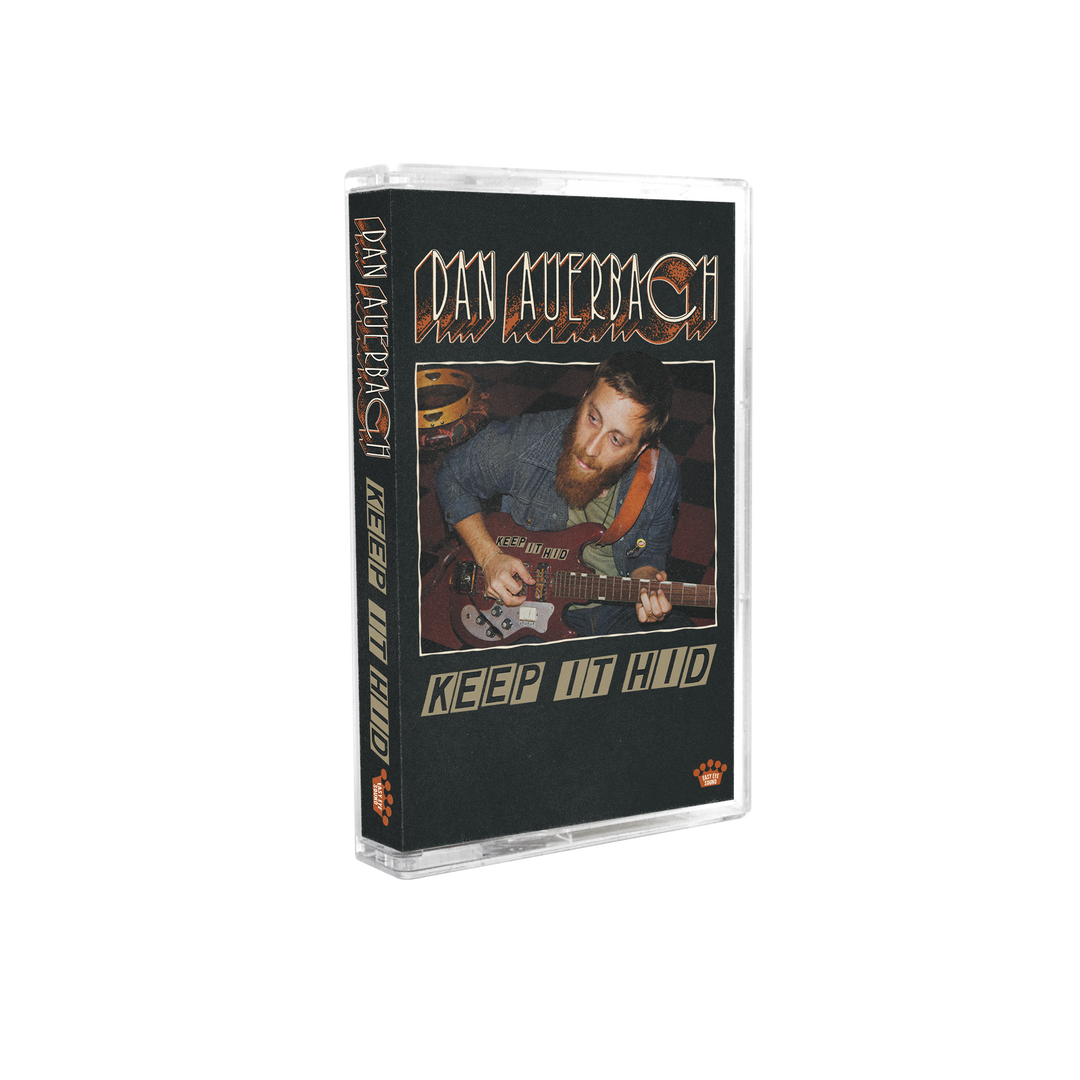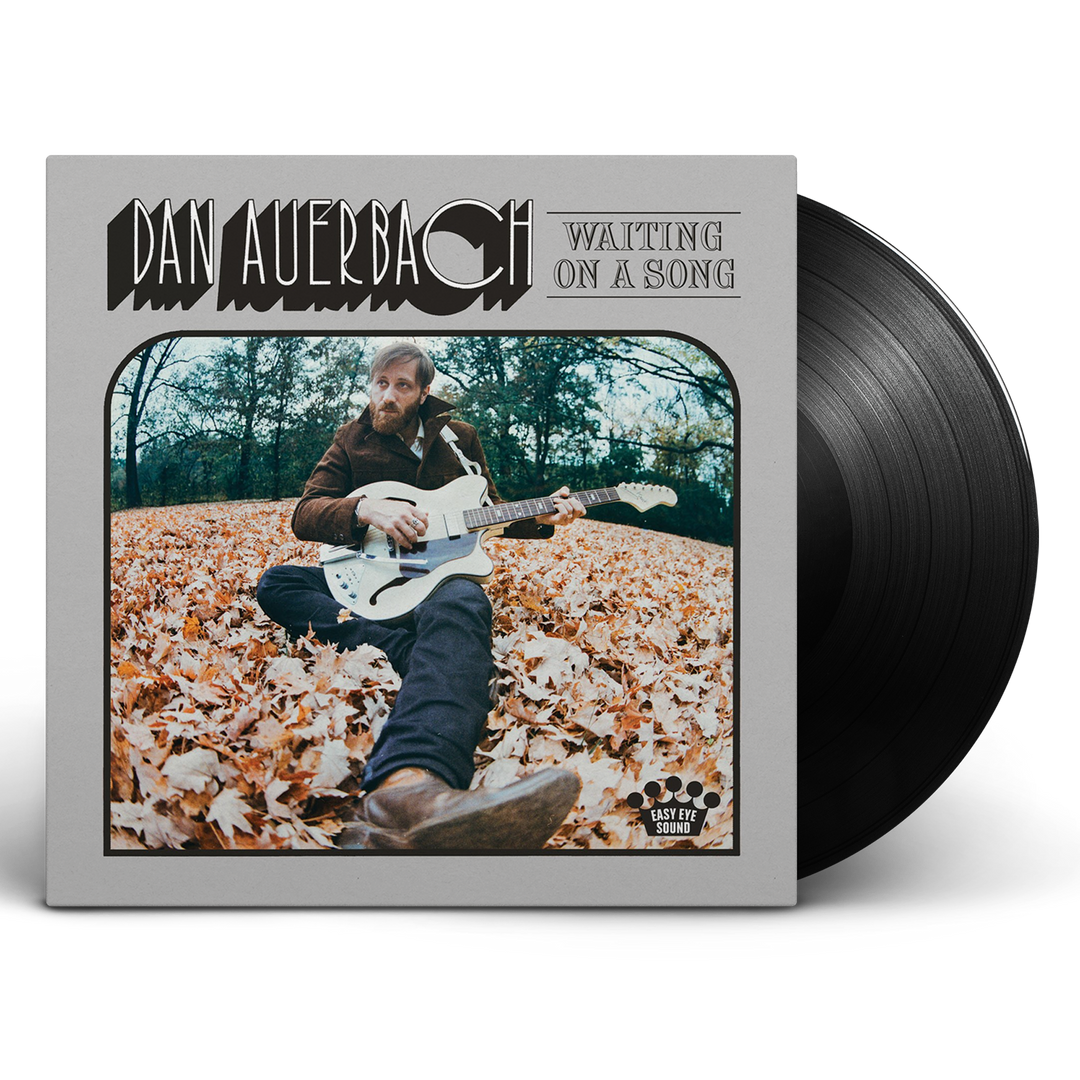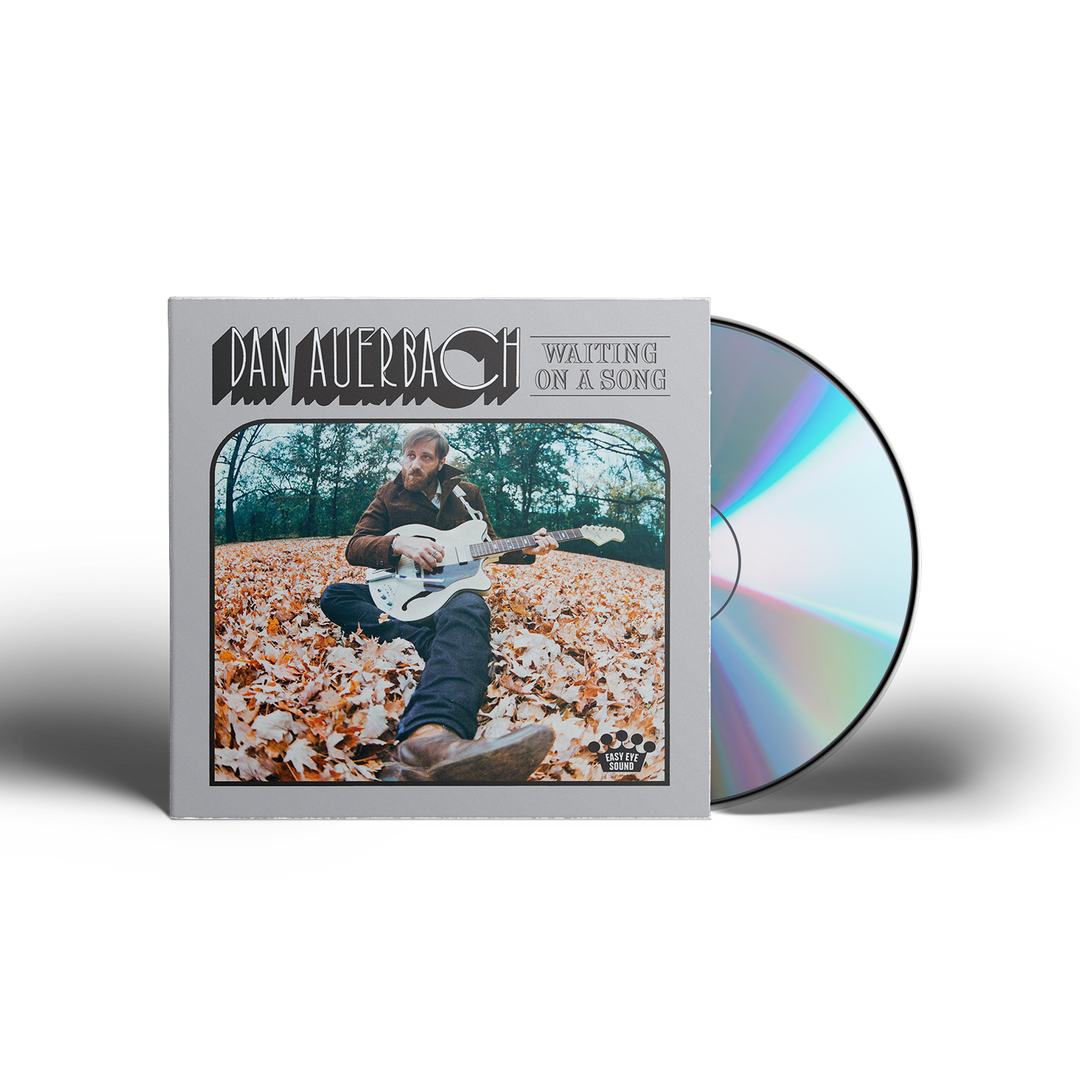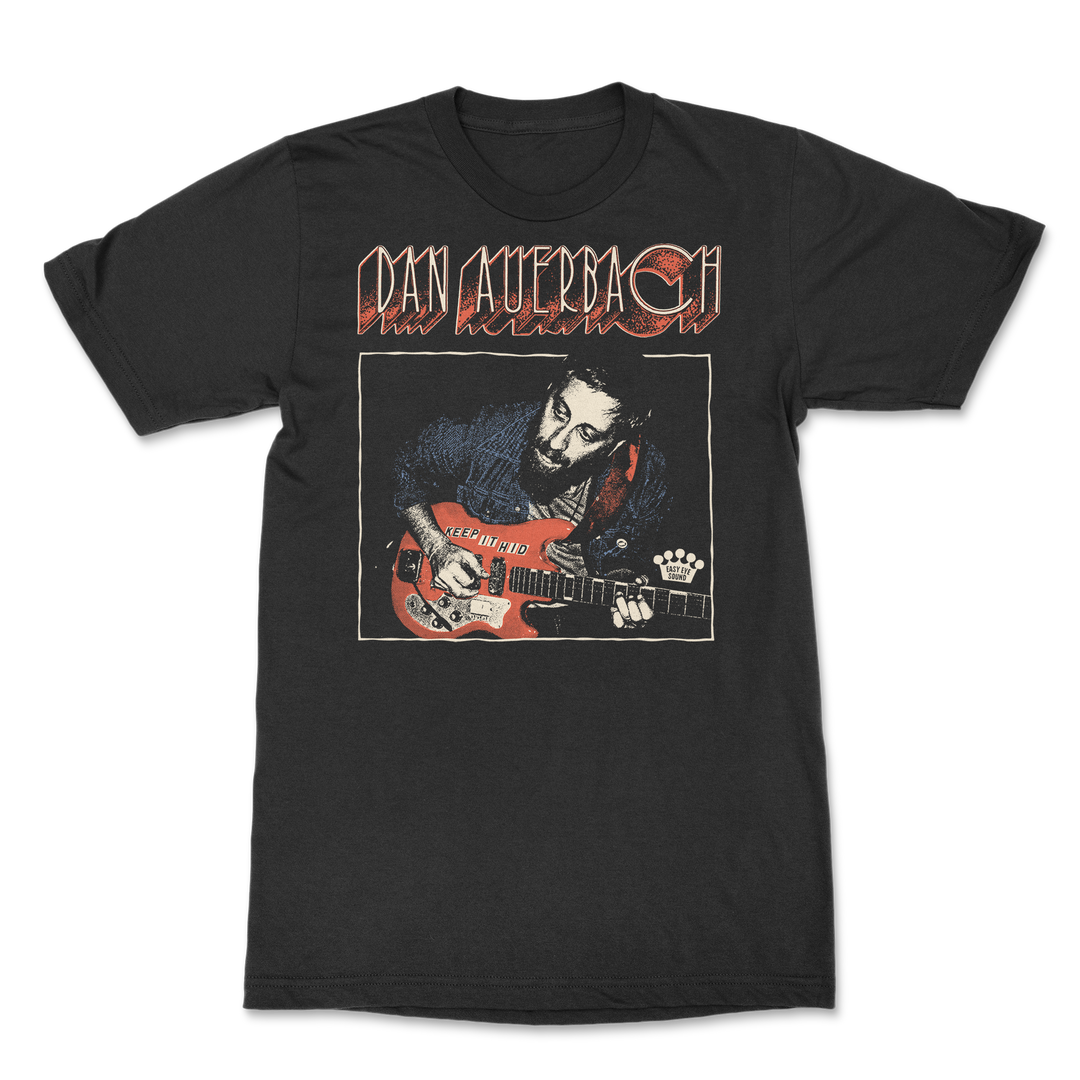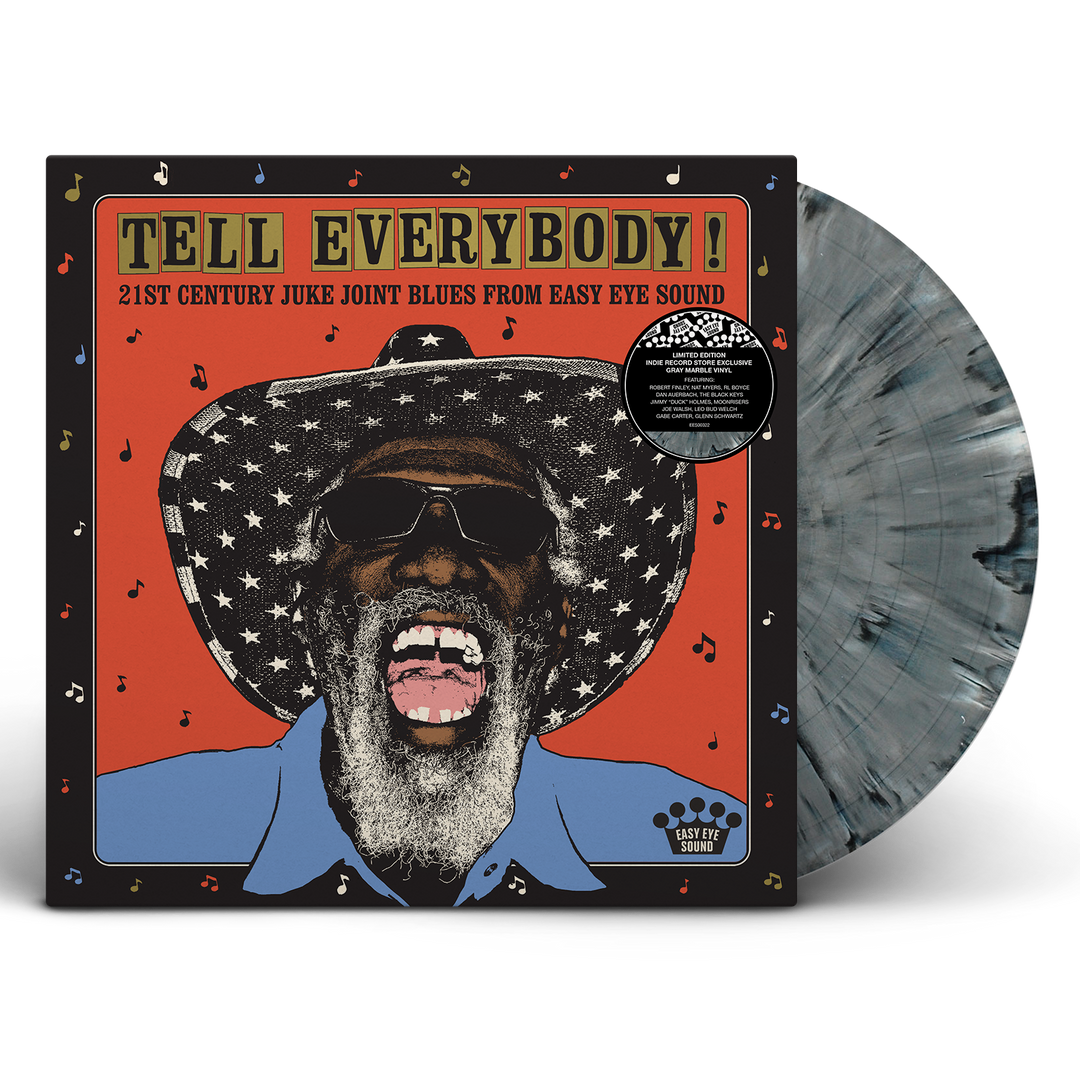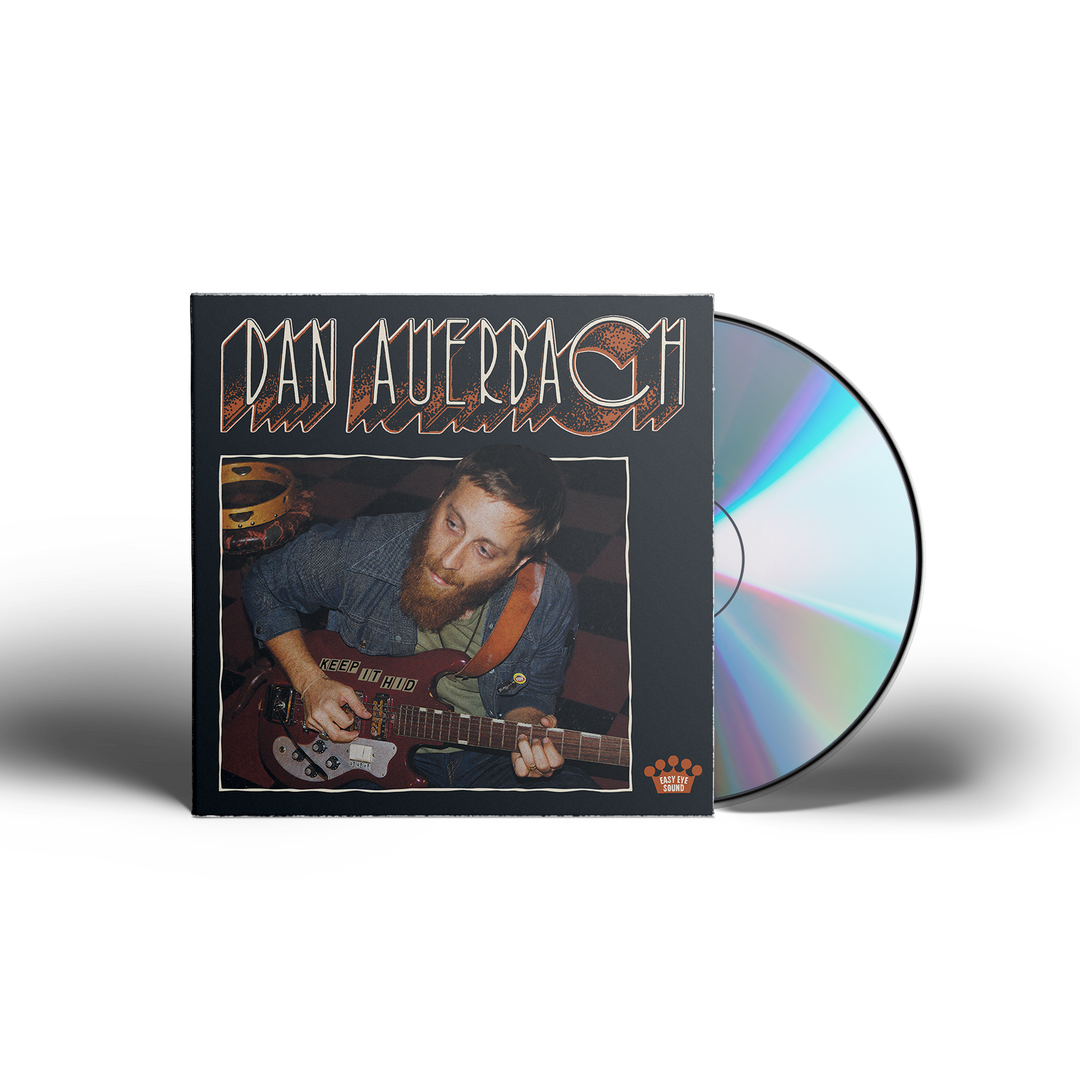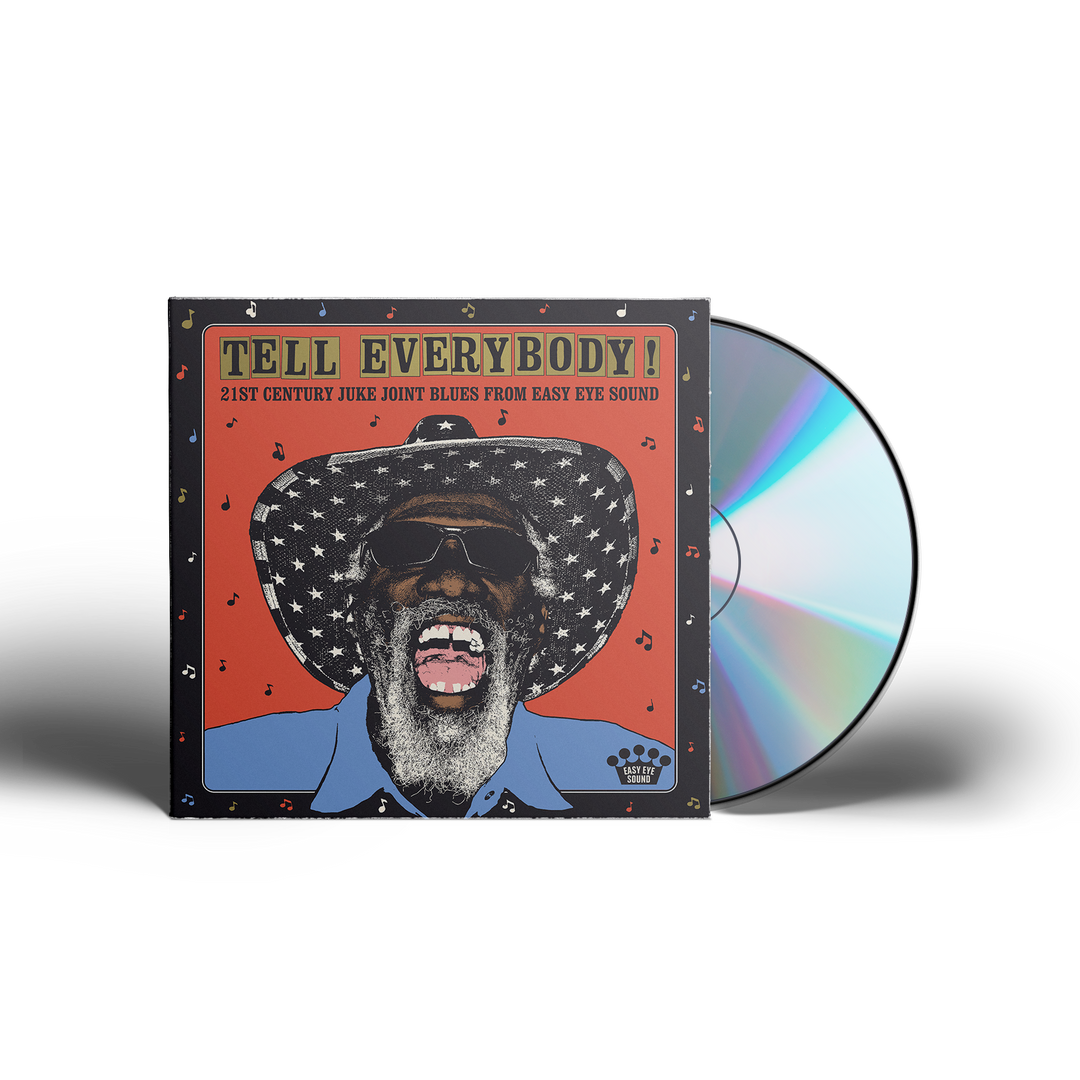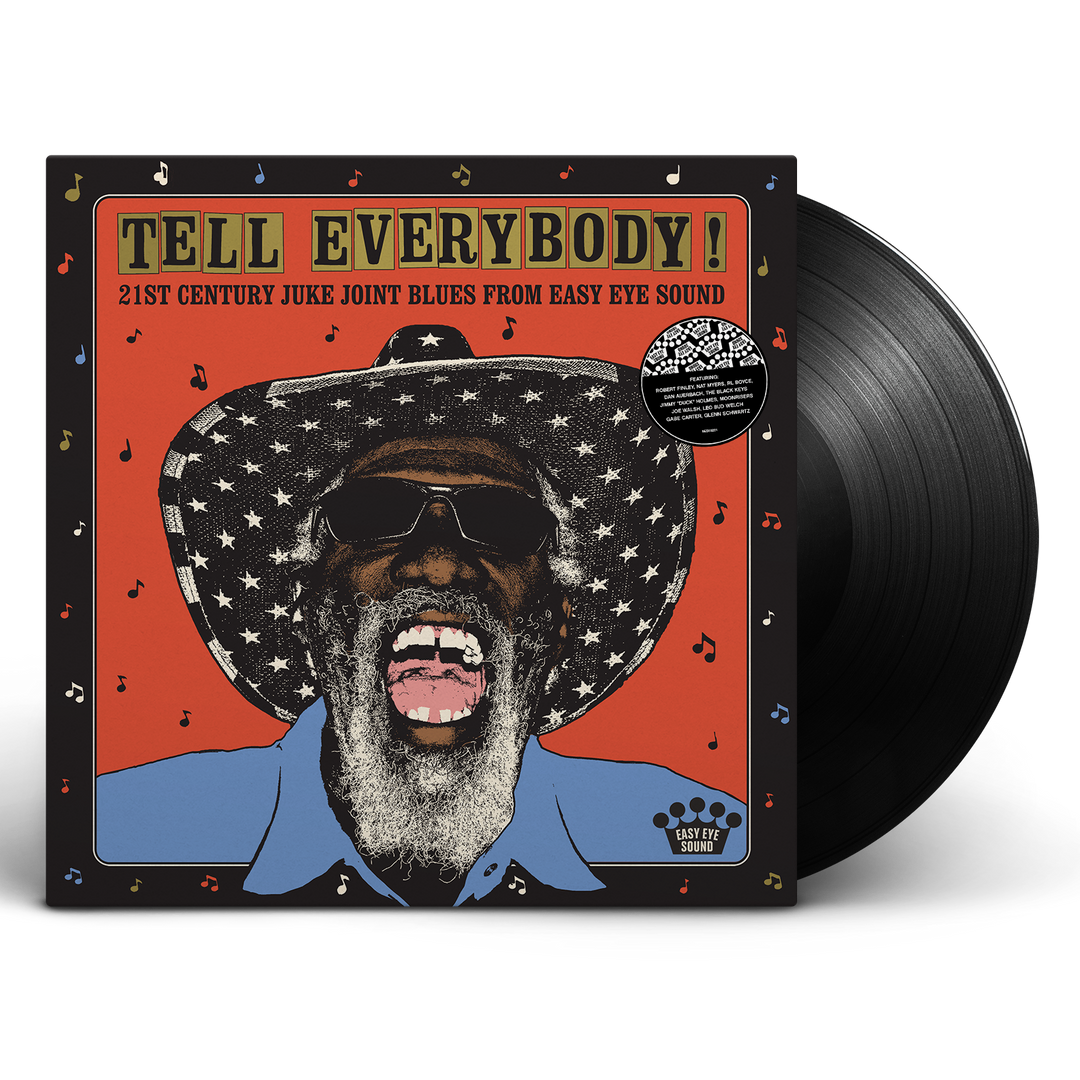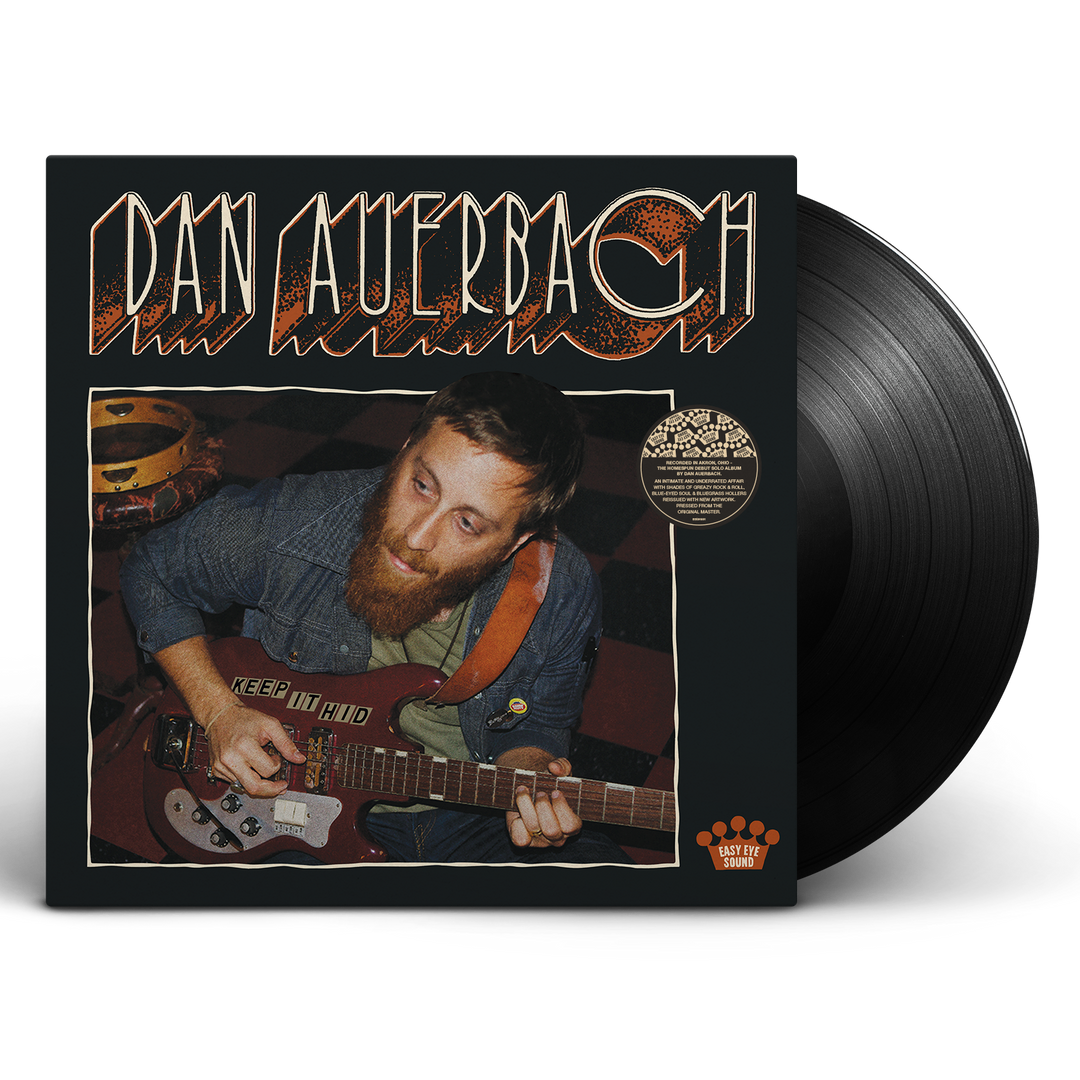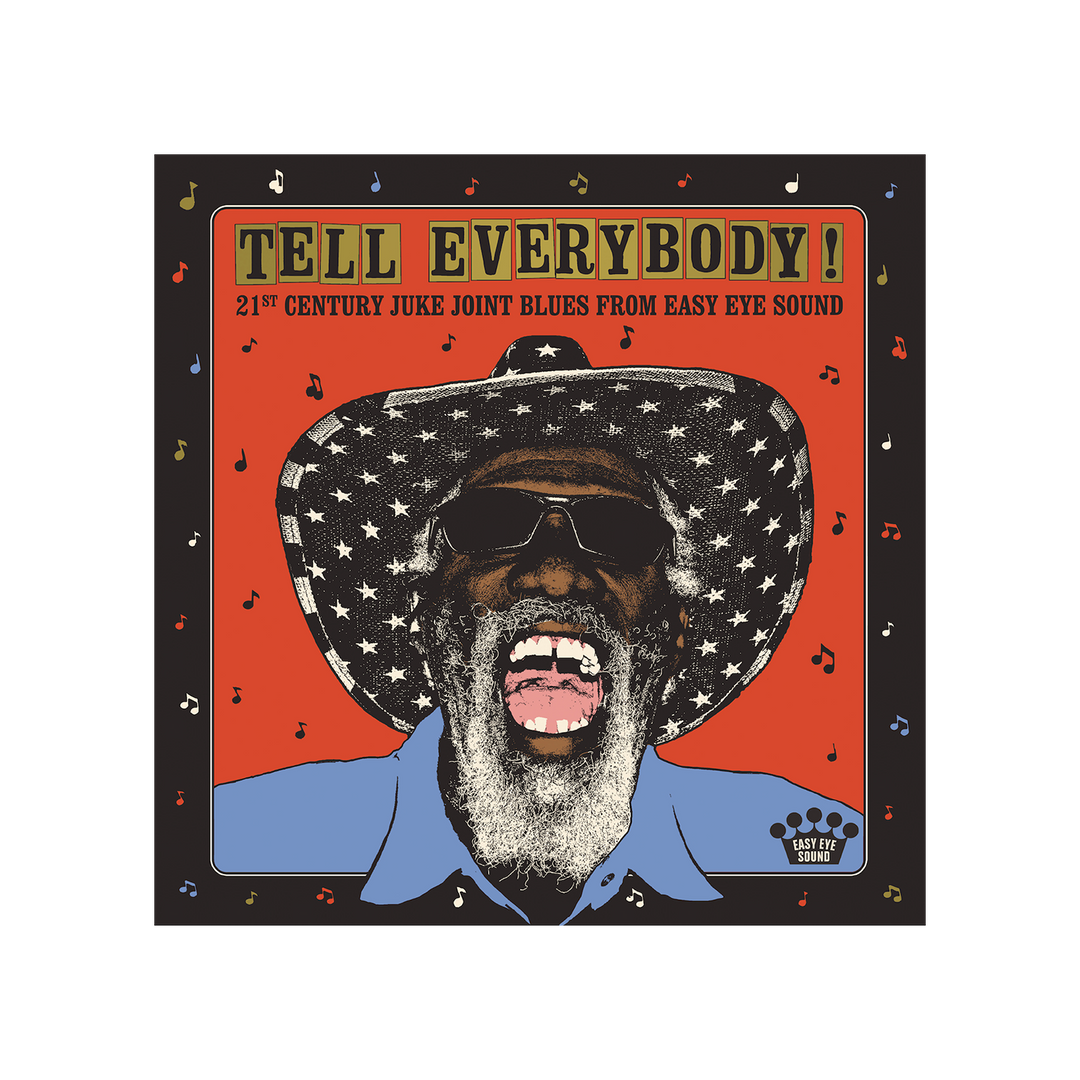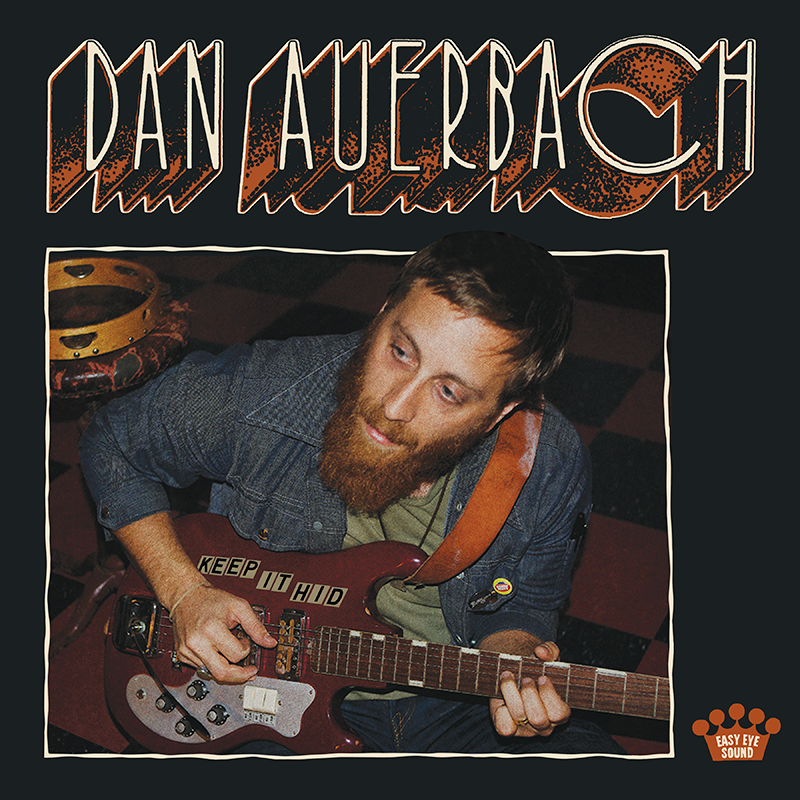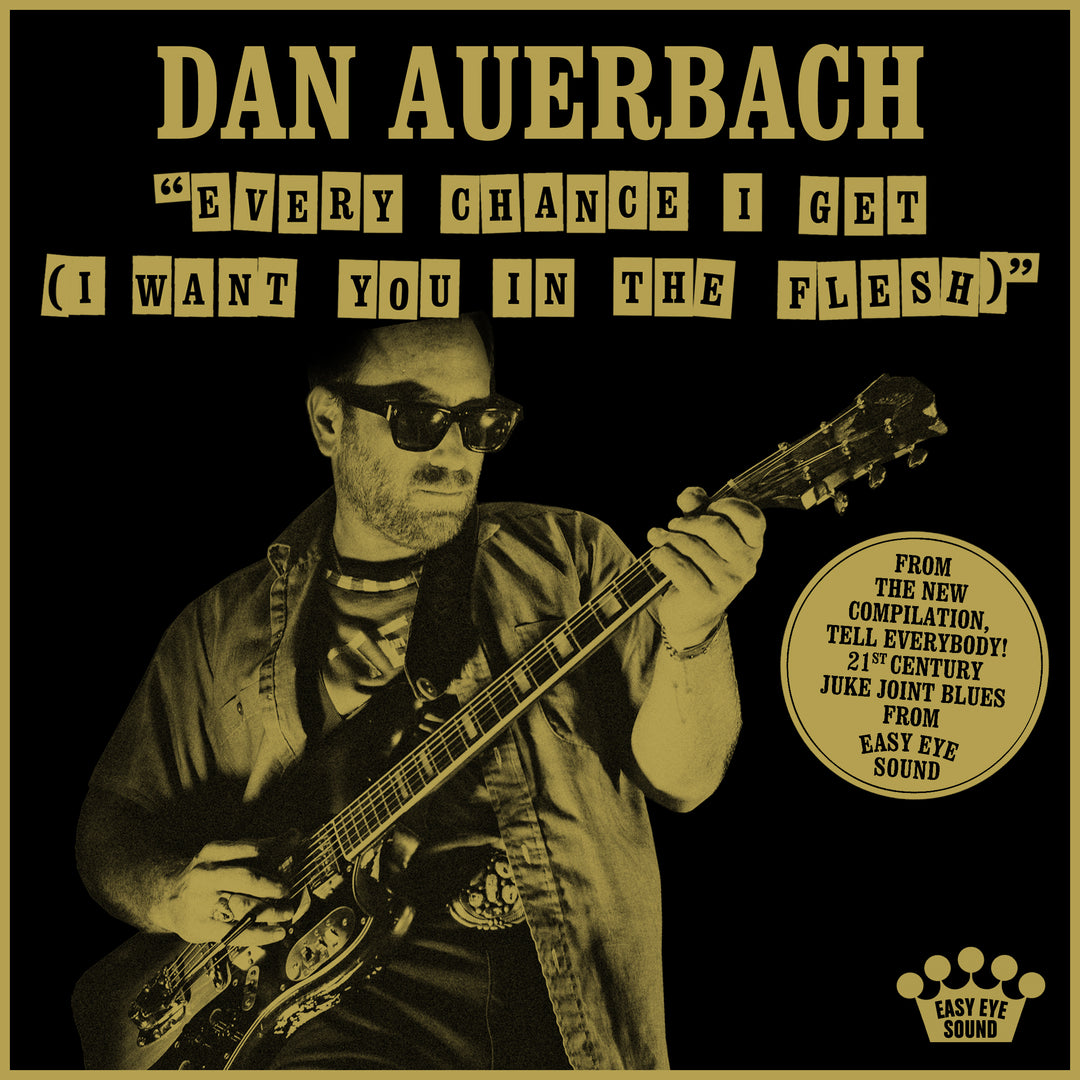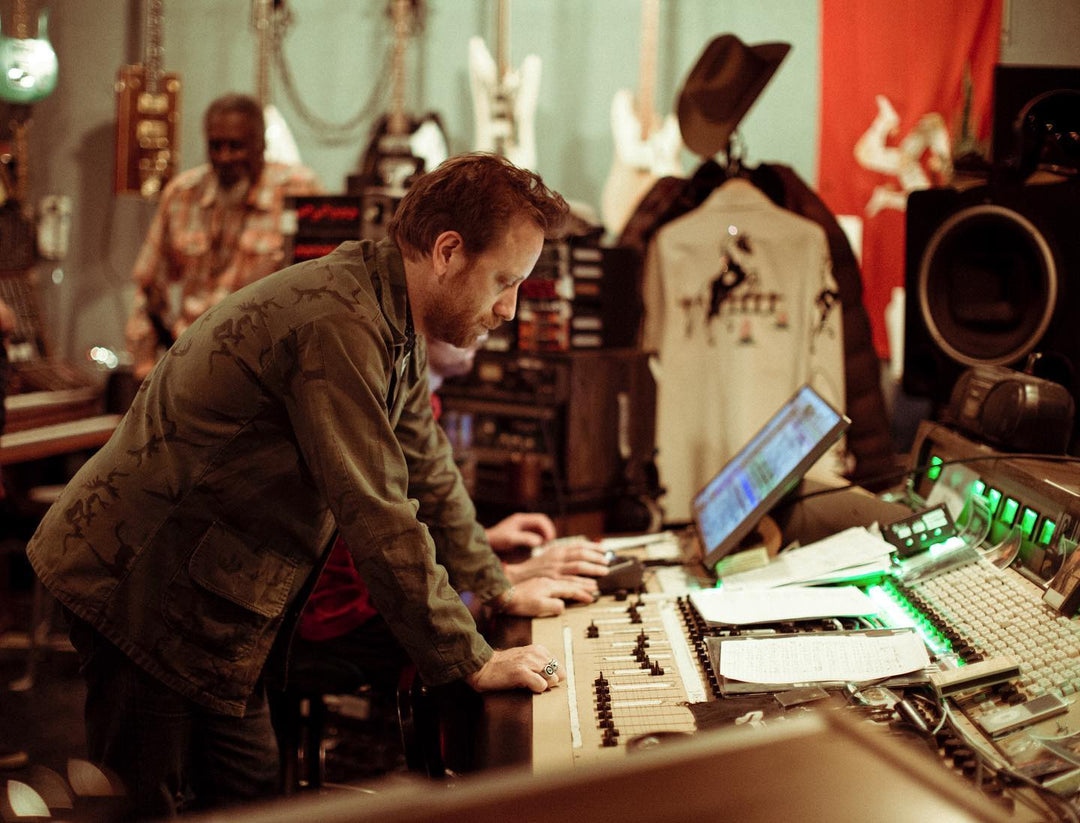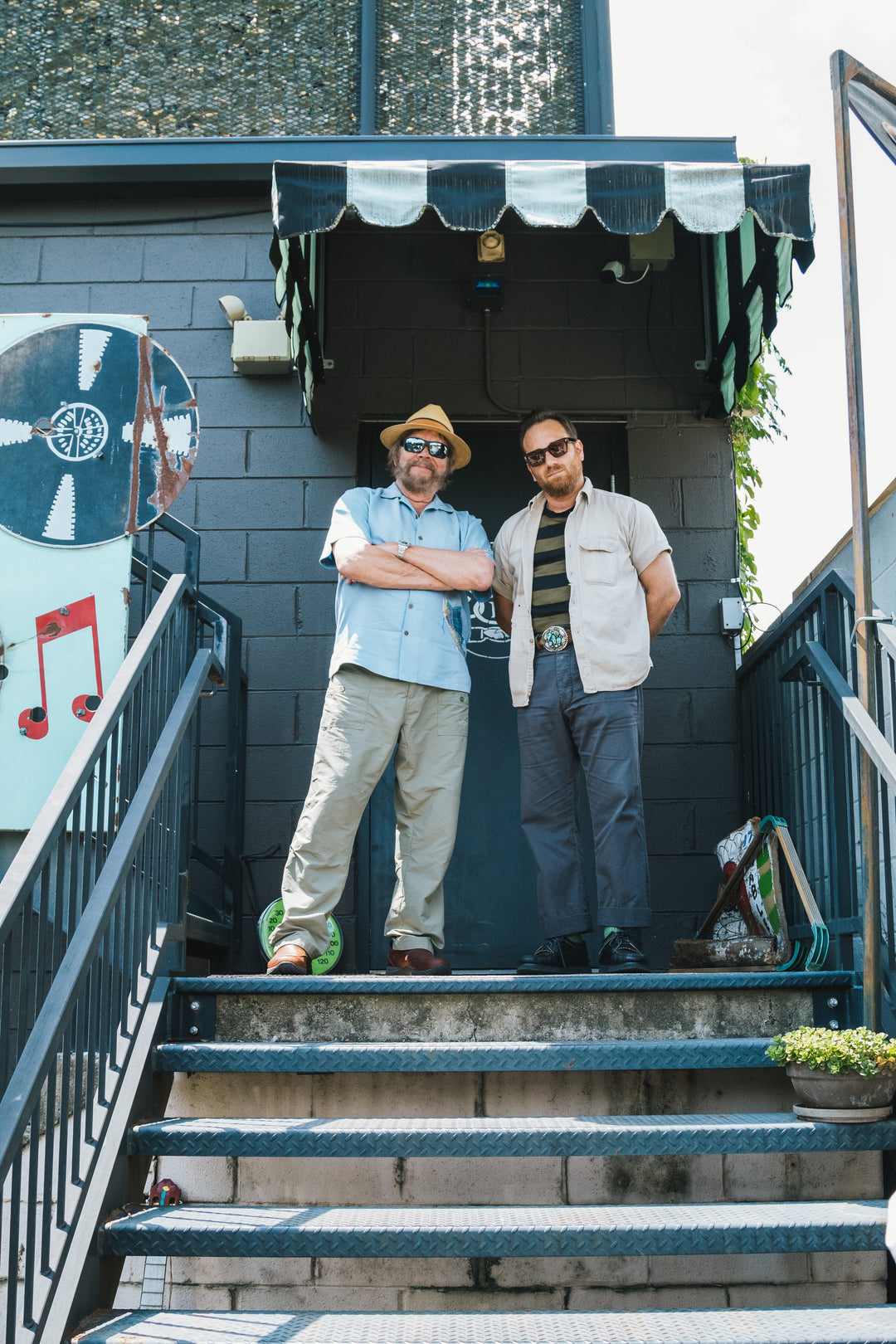Dan Auerbach wasn't making a solo album – at first. In 2008, the singer-guitarist in The Black Keys – his blues-to-the-bone duo with drummer Patrick Carney – began writing and recording music on his own, in a studio Auerbach had built at the back of his house in the band's hometown, Akron, Ohio.
It was "me following my gut," he says today, "making sounds in there" whenever The Black Keys had a break from the worldwide touring for Attack and Release, their fifth album and first Top 20 LP. The songs coming together on Auerbach's mushrooming collection of vintage instruments and machines "were just me getting used to the gear and having fun." But "testing the room," he admits, "was how the album came to be."
In February, 2009, Auerbach released 14 songs from the sessions as his solo debut, Keep It Hid, covering the waterfront from echo-laden garage rock ("Heartbroken, In Disrepair") and fuzz-scarred blues ("The Prowl") to haunted Southern soul ("Real Desire") and bittersweet-country comfort ("When The Night Comes"). The album's title came from one of the tunes. It was also how Auerbach made the record: so far under wraps – singing and playing almost everything, including drums on nearly half the tracks – that Carney, distracted by personal issues, was surprised to find his bandmate and friend from high school getting busy without him.
"It was just a phrase in a song," Auerbach insists. "If I'd found a record by somebody called Keep It Hid, with that cover" – an odd-angle closeup of Auerbach playing an exotically sculpted mid-Sixties Japanese-budget-brand guitar – "I would have bought it," he adds, laughing.
"I never doubted that Pat and I would keep playing," Auerbach says firmly. In fact, Keep It Hid was a milestone-in-waiting: Auerbach's quiet, giant step on the way to The Black Keys' creative and multi-platinum breakout records, 2010's Brothers and 2011's El Camino. Also just over the horizon, after Auerbach's fateful move to Nashville in August, 2010: an exploding, parallel discography of continuing solo work, side projects and productions for other artists coming out of his recording workshop and label, Easy Eye Sound.
"This represented the start of me having my own studio," Auerbach says of Keep It Hid, now reissued by Easy Eye Sound with a new cover design after being out of print for a few years. The Black Keys already had a history of making great records in improbable settings: in basements around Akron, wherever Carney (who did the engineering) was living at the time; in a former tire-manufacturing plant for 2004's aptly-dubbed Rubber Factory. "We really didn't know what we were doing," Auerbach confesses. "We put mikes inside the dryer [for reverb]. Pat would swing a mike around while I played through the guitar amp, to get a reverse-Leslie effect."
But Auerbach was taking notes when The Black Keys made Attack and Release with producer Brian Burton (a/k/a Danger Mouse) at Suma Recording, outside Cleveland – "a classic old studio" with "golden-age gear" and a pedigree of hits by acts such as Grand Funk Railroad and Wild Cherry (their 1976 single "Play That Funky Music"). Auerbach checked out other facilities too – the kind that "got the sounds I loved," including the London garage-rock shrine Toe Rag and an actual, converted garage near San Diego run by engineer Mark Neill, who helped Auerbach build his Akron studio and would engineer Brothers, starting at Auerbach's house.
"Most of the music I love was recorded in places where the music would just flow," Auerbach says, "where the engineer or producer had to have a soulful touch." His version on Keep It Hid of "I Want Some More" – a 1967 psych-pop marvel by Jon and Robin and the In Crowd – was "me investigating studios and sounds," Auerbach tracing the original single (with "that amazing fuzz bass") to the Robin Hood Studio in Tyler, Texas, where Z.Z. Top made their first two albums in 1970 and '71. The Black Keys actually talked about recording Brothers at Robin Hood before deciding on another legendary space, Muscle Shoals in Alabama.
"If you're lucky enough to get into a studio like that, it can be life-changing," Auerbach says. "You're living inside the music, not just hearing it out of the speakers." That was the dream he built in his Akron backyard. "I was always recording, any chance I would get. Then I started thinking, 'I've got a bunch of these songs lying around. It might be fun to put them together.'"
Keep It Hid opens with the sound of heritage and family: Auerbach singing "Trouble Weighs A Ton" alone, with an acoustic guitar, until his uncle, James Quine, chimes in at the chorus, harmonizing with Dan in the bluegrass-and-bloodline tradition of The Stanley Brothers.
"Growing up in my house, they were the kings," Dan remembers. Ralph and Carter Stanley "had that lonesome sound, and the songs were so mournful. My uncle Jim has a voice I always loved, and he was inspired by those bluegrass singers. He would be at every family reunion, playing his Martin guitar and singing songs like 'Angel Band' [cut by the Stanleys for Decca in 1955] with my Uncle Jack and Aunt Caroline. I wrote a song that he had to sing." (Another gifted relative: Dan's cousin, the pioneering avant-rock guitarist Robert Quine.)
James Quine also played rhythm guitar on Keep It Hid, chooglin' through the tribal stride of "Mean Monsoon" and the Bo Diddley-style throb of "Street Walkin'"; took that cover photo; and stepped back to the harmony mike in the tremolo-guitar brawl "Heartbroken, In Disrepair." "The hardest part" in that song, Dan points out, "was getting the drums to line up with the tremolo." Drummer Bob Caesare – who had been an engineer and sideman on Auerbach's production of a 2008 album by Hacienda, a band of Hispanic brothers from Texas – "had to lock in with my amp and make it groove right. And he did it."
Still close to home, Dan recorded a song on Keep It Hid with lyrics by his father Charles. "Whispered Words (Pretty Lies)" was romantic fallout with turbulent psychedelic-soul guitar and a stampeding finale, like the rough guts of a Funkadelic deep track. At the other end of heartache, "When The Night Comes" found Dan in the high country again, in a duet with alternative-country singer Jessica Lea Mayfield, then in her late teens and a bluegrass-vocal sensation. Mayfield's 2008 album, With Blasphemy So Heartfelt, was produced by Auerbach after he heard a record she'd made with her family band. She also had a vocal cameo with The Black Keys on Attack and Release.
Charles Auerbach was "a music lover forever," Dan says, who passed his eclectic enthusiasm for American roots music on to his son via an enviable collection of country, folk and Delta blues LPs. "One summer, he got inspired and started writing. He would pass lyrics on to me, and I recorded a bunch of them." A decade after getting his first writing credit on Keep It Hid, Charles released his debut album as a singer and writer, 2018's Remember Me – as Chuck Auerbach, produced by Dan for Easy Eye Sound.
Mayfield, in turn, was raised in singing and bluegrass almost next door – in Kent, Ohio, a half-hour's drive from Akron. "As soon as I heard her, I needed to know who she was," Auerbach recalls. "Her family was a traveling band, and she was writing these incredible songs, funny and witty. I couldn't believe it. We started getting together and writing stuff. Those bluegrass harmonies – that's what really connected us."
Auerbach actually recorded "When The Night Comes" at Mark Neill's studio in California, along with an instrumental bridge, "Because I Should." The two talked about "needing to create little pieces to tie the songs together," Auerbach says, "to create a mix-tape flow." But aside from that interlude, Keep It Hid had its own natural momentum in the emotional gear shifts of Auerbach's writing and the way his regular listening to the records he loved – in some cases, had just discovered – charged the music he made.
"The different styles of music were representative of what I listened to on a day-to-day basis," Auerbach says. "I wanted to find a way to make them all work together." The bleak, frantic kick of "My Last Mistake" came from "listening non-stop to Rockin' Horse," an obscure Liverpool band that combined power-pop chops with a rock & roll-saloon vibe – like the Band playing at the Cavern Club – on their only album, 1971's Yes It Is. Auerbach dug that LP so much he covered one track, "Oh Carol, I'm So Sad," when he toured for Keep It Hid backed by Hacienda and drummer Patrick Hallahan from My Morning Jacket.
Auerbach was also spending a lot of time with the midnight creep of Dr. John's 1968 acid-voodoo classic, Gris-Gris, turning that record's eccentric spell into the humid, bluesy magnetism of "When I Left The Room." (Auerbach returned the favor of inspiration by producing Dr. John's 2012 GRAMMY-winning album, Locked Down.) And there was always the Creedence Clearwater Revival ideal. "I loved them before I became a musician," Auerbach declares, "the way they were able to write hit songs and have them still sound raw – produced just enough.
"I just get inspired all the time," he goes on. "Every day, I find a new song that I didn't know existed – some 45 – and it makes me want to play music more. The cycle never ends."
In "Goin' Home," Auerbach ended Keep It Hid the way he started it – on acoustic guitar, as if over a campfire in a hotel room somewhere on the road with The Black Keys. Indeed, he wrote it in Europe on one of their tours, exhausted by the grind and "feeling terrible for being away from my kid. The shows were the easy part. We just couldn't slow down. We had worked too hard just to quit.
"That's why I knew," he says. "It was never something we would stop." In effect, Keep It Hid "helped make Brothers possible," Auerbach claims. "Recording these songs, getting the sounds, was the reason Pat and I were able to roll into the studio and instantly cut some new songs" while that backyard studio in Akron became a working blueprint for Auerbach's next miracle factory, Easy Eye Sound.
"These things have to happen," he says, "the way they happen." And if you missed it the first time, Keep It Hid is now back in the light, where it belongs.
Read More
